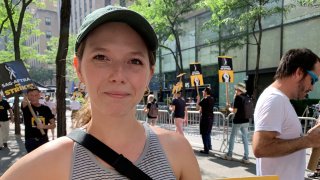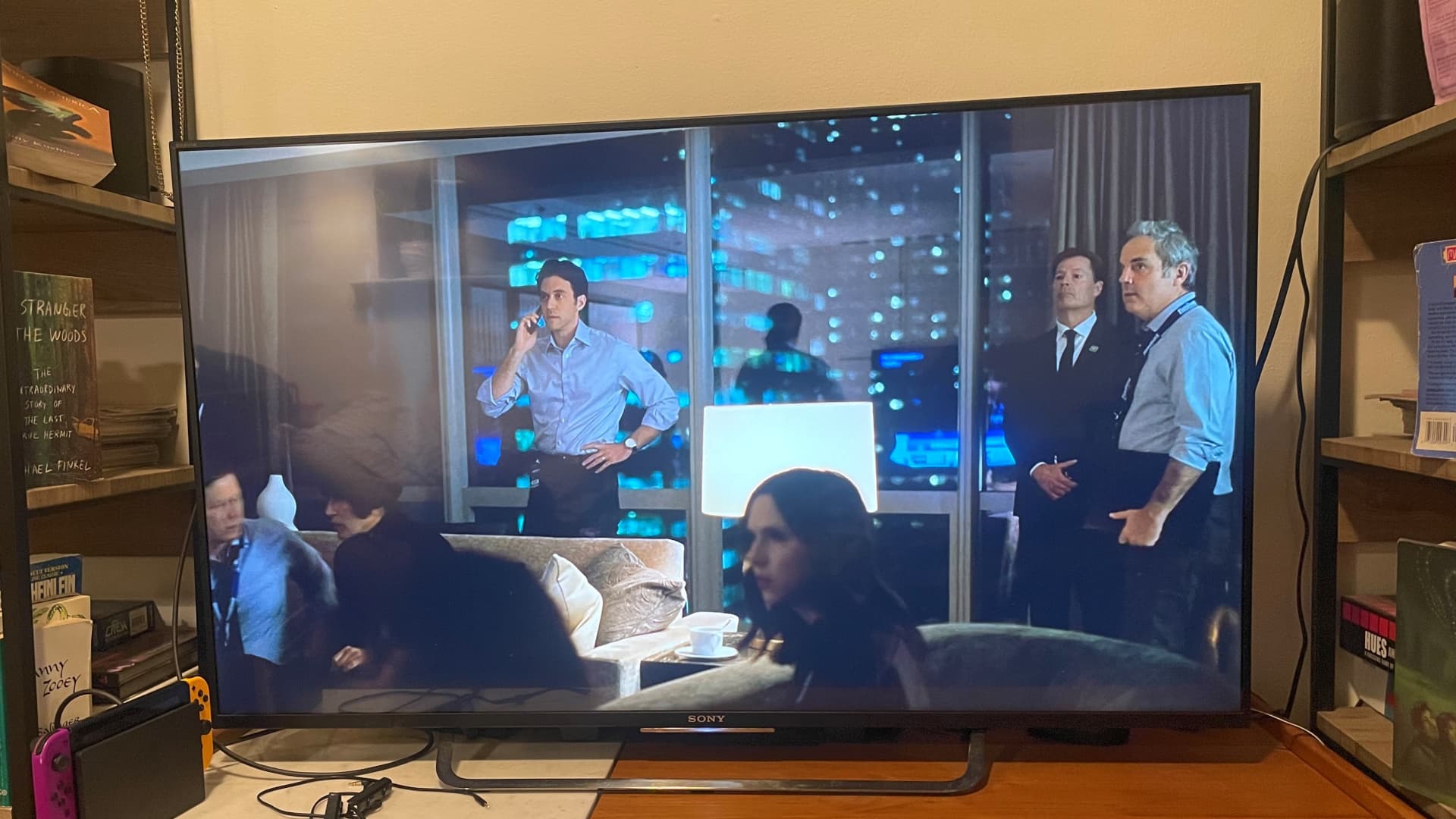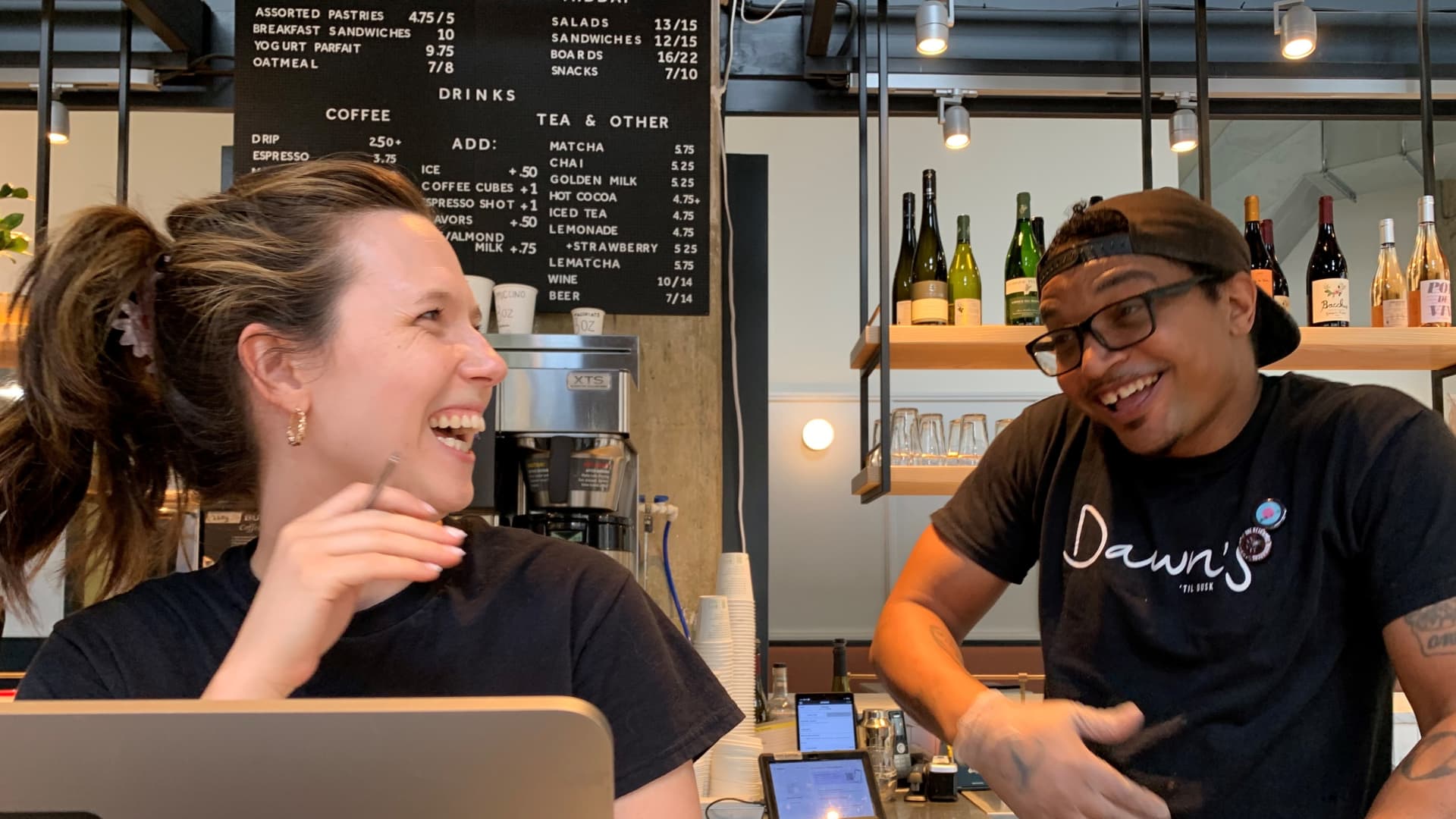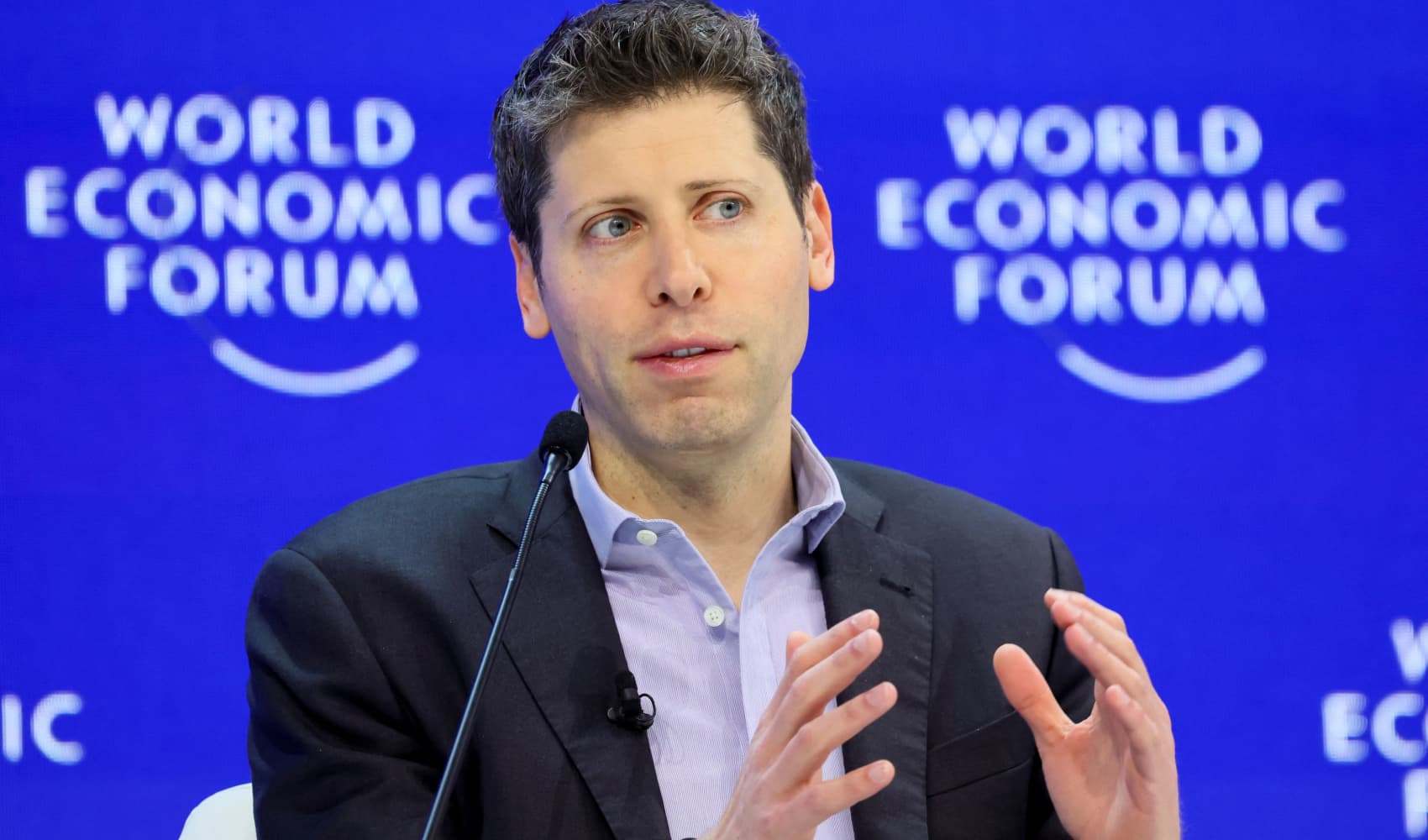
On a hot Tuesday morning in early September, actor Esther Cunningham, 29, is one of a few dozen people marching in the NBC Universal Screen Actors Guild-American Federation of Television and Radio Artists picket line. She walks back and forth with the group, holding up her "SAG-AFTRA on strike!" sign and chanting, "What do we want? Contracts! When do we want them? Now!"
SAG-AFTRA actors have been on strike since July 14 after negotiations opposite the Alliance of Motion Picture and Television Producers failed to produce a new TV and film contract for the next three-year cycle. Among those on strike are the many extras who fill screens countrywide, performing nonspeaking parts, often in the background of a scene.
That's the group Cunningham currently falls into. A freckled brunette and Cincinnati, Ohio, native, Cunningham moved to New York with her husband in October 2020 to pursue acting full-time. She's since made a living as a background actor in shows like "The Marvelous Mrs. Maisel," "Succession," "Law and Order: Organized Crime" and "Blue Bloods." Days on set can be grueling but getting an opportunity to work on so many shows has been "dreamy," she says.
For Cunningham and artists like her, this moment in the industry is particularly watershed. Whereas extras are often needed and paid for days at a time on a project, the AMPTP is lobbying to scan their likenesses, use that scan for the remainder of a shoot and pay them for just one day of being there. For its part, SAG-AFTRA is trying to set up "about three and a half pages of guard rails" around the use of tech like AI for this kind of purpose, says entertainment lawyer Jonathan Handel, including written consent from the background actor before they get scanned.
Get Southern California news, weather forecasts and entertainment stories to your inbox. Sign up for NBC LA newsletters.
"My body is my line of work," says Cunningham. "If that's taken from me by a body scan, then I have nothing new to offer."
'It's not a very stable career'
A lifelong drama kid, Cunningham studied theatre at Wheaton College in Illinois and graduated in May of 2016. At that point, she wasn't ready to take the plunge as a full-time actor. "No newsflash to anyone but it's not a very stable career," she says.
Money Report
Instead, she returned to Cincinnati to try out other possible careers. She tried being a barista, did administrative work in an office and taught beginner Latin at the Christian school where her parents work ("that was the extent of my nepo baby," she says). She even got an internship at Ensemble Theatre Cincinnati where she performed and worked backstage.
But nothing fed her like acting. She realized both that she wanted to do it full-time and that if she stuck around, there wouldn't be too many opportunities to do it locally.
During the pandemic, she got a New York Times notification "that New York rent is the cheapest it's ever been," she says. That felt like a sign from the universe: It was time to move to New York.
'I really want to be on "Maisel" and "Succession"'
Having heard about background work throughout her years in entertainment, Cunningham began perusing sites like Backstage.com for opportunities when she got to New York. "I really want to be on 'Maisel' and 'Succession,'" she says she thought. They were two of her favorite shows and it would be "really fun to say that I worked on them."
When she started booking gigs in the spring of 2021, they ended up being the first two shows she appeared on.
"Maisel" was "a pretty brutal day," she says of the season 4 shoot. It was 16 hours altogether. "We were out at Coney Island at the beginning of May. It was cold. I was in little shorts. We were all sunburned by the end of it."
But she loved it.

A week later, her first "Succession" shoot was shorter, just a few hours. It was for a scene in season 3 of the HBO drama in which main character Kendall Roy, played by Jeremy Strong, "is walking into the big gala," she says. "He's like, 'F--- the patriarchy!' So I got to see him improv a few of the different variations."
Cunningham quickly began filling her schedule with background gigs, working up to three days per week on various shoots. As of June 30, the minimum pay for an eight-hour union background job is $187 (before taxes), or about $23 per hour. The ninth and tenth hours pay time and a half and any hours worked beyond that pay double.
On a day in which you're bused to a different city, rain holds up shooting and maybe you get a few hours of overtime "you can easily make $500," says Cunningham. "You have a couple of those good days per month and then you have a couple of your base pay days per month and I was pretty much splitting the bills with my husband," she says. Cunningham's husband is a full-time bartender.
Being on set shows you 'how different actors behave'
It's hard to say how many people do background work in the U.S. Estimates are "usually in the tens to hundreds of thousands," says Kate Fortmueller, associate professor at Georgia State University and author of "Below the Stars: How the Labor of Working Actors and Extras Shapes Media Production."
Some get into it as a way to make a little extra cash. Others hope it'll be a springboard to better acting gigs. For Cunningham, beyond just a paycheck, it's been an invaluable opportunity to learn. "Being on a variety of different sets really shows you how different actors behave, how different directors behave, and you get this prime viewing of the world," she says.
It's also been a way to meet friends and like-minded collaborators. She's currently working on two web series, "For/Closure" and "The Go To," both of which have given her an opportunity to act more prominently and both with people she met on set.
For her and others like her, the threat of losing ongoing background opportunities extends far beyond the paycheck. It's about losing an entire ecosystem of colleagues and learning opportunities that build them up as artists.
"My whole New York network has been built through background," Cunningham says.
You 'could see the writing on the wall'

A few weeks before the strike happened, Cunningham started looking for other work. "You kind of could see the writing on the wall with the [Writers Guild of America strike]," she says. She got hired as a barista at a swanky Brooklyn coffee shop, Dawn's Til Dusk, and started working there in July.
These days she slings coffee three to four days a week. After tips and taxes, she brings in about $21 per hour, which has helped offset the loss of income from the strike. She also recently picked up a part-time office gig. She tries to make it to the picket lines twice a week.
In terms of acting, she's working on those web series and is taking an acting class at Act First Studios. She also dove back into theatre in New York this summer, performing at the Chain Theatre's one act festival in June and the Blank Page Theatre Co.'s Summer New Works Festival in July.
As negotiations between SAG-AFTRA and the AMPTP remain at a standstill, Cunningham is excited about her various acting opportunities and revved up to keep fighting for the working conditions she believes extras deserve. Still, she misses being on set "every day," she says.
"I'm ready to go back."
Disclosure: NBCUniversal is the parent company of NBC and CNBC.
Want to earn more and land your dream job? Join the free CNBC Make It: Your Money virtual event on Oct. 17 at 1 p.m. ET to learn how to level up your interview and negotiating skills, build your ideal career, boost your income and grow your wealth. Register for free today.
DON'T MISS: Want to be smarter and more successful with your money, work & life? Sign up for our new newsletter!
Check out:
'I got a check the other day for $8': TV and film writers share why they're on strike






